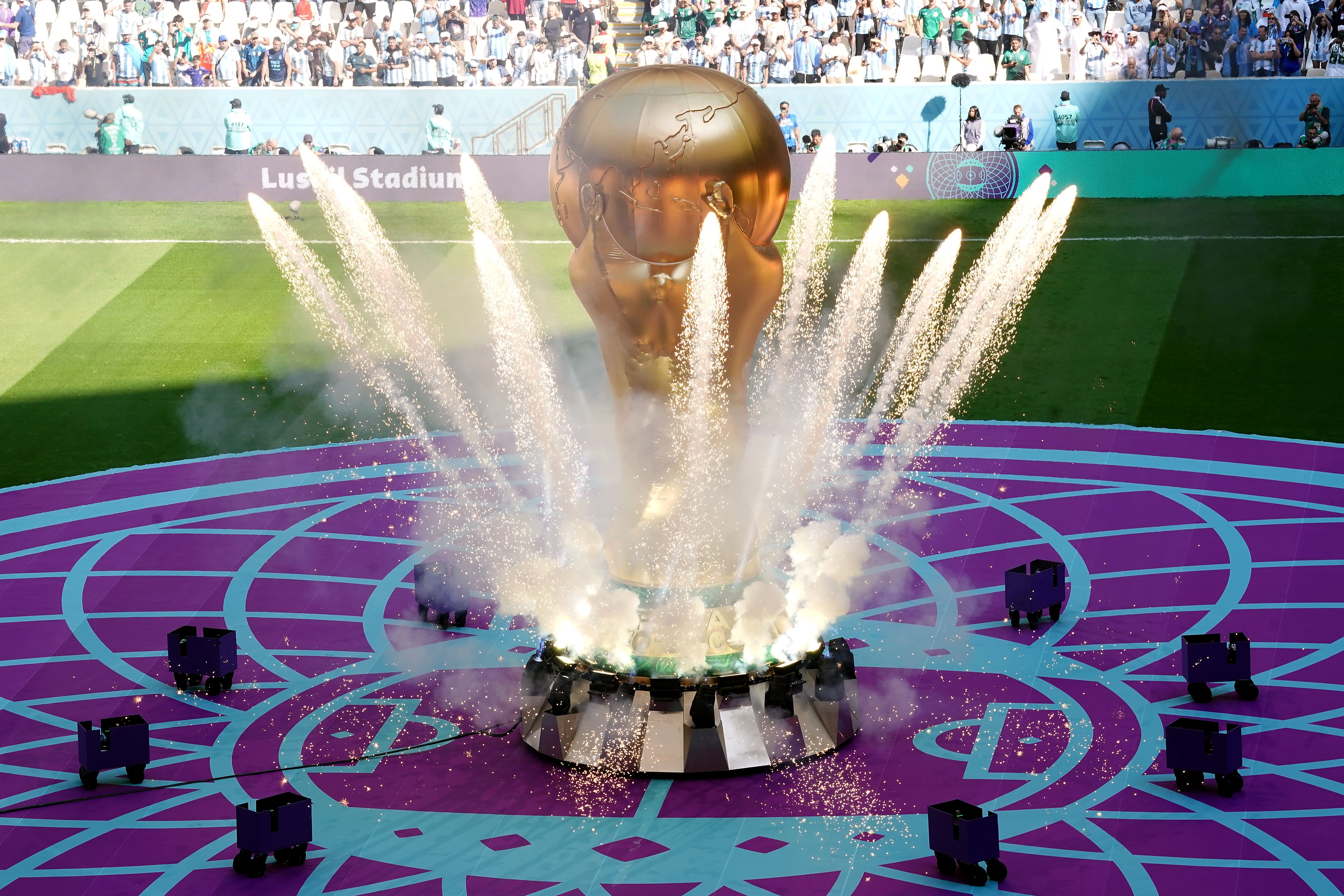Sport and politics collide with major tournaments dictated by off-field issues including Covid, war and sportswashing
A look back at sport in 2022.

Sport returned to something like normality in 2022, but politics continued to play a prominent role.
Two of the biggest stories bookended the year, with then tennis world number one Novak Djokovic deported from Australia over his opposition to being vaccinated against Covid-19, while the World Cup in Qatar focused attention on sport’s responsibilities regarding human rights.
A winter World Cup was a success on the pitch, with shocks, drama and compelling matches, but at considerable cost to the migrant workers tasked with building the infrastructure and amid accusations of sportswashing.
How sport reacts to countries with restrictive regimes will be a debate that extends far into next year and beyond.
The Saudi-funded LIV Golf series attracted some of the biggest names and threatened to tear the sport apart, while Formula One’s relationship with Middle East countries has been another source of rancour.
The Russian invasion of Ukraine also left sport in a quandary. Teams from Russia and its ally Belarus were excluded across the board, but sports reacted differently to individual athletes from the two nations.
Wimbledon and the Lawn Tennis Association found themselves out on a limb over their decision, at the Government’s behest, to ban Russian and Belarusian players.
The ATP and WTA responded by removing ranking points from Wimbledon, while the two organisations were handed hefty fines, putting them in a very difficult position for next summer, with the war showing no sign of ending.
Rugby union, meanwhile, found itself in a financial mess as Wasps and Worcester called in the administrators.
On the field, the World Cup was the biggest of a series of major events as sport caught up with itself following two years of Covid-related disruption.
England and Wales both left Qatar earlier than they had hoped, but there was plenty of success to celebrate for the home nations throughout the year.
The Lionesses took top billing thanks to their brilliant triumph at the European Championship, culminating in a final victory over Germany and the biggest title for England in international football since 1966.
Record crowds flocked to matches across England and there has been a positive knock-on effect in the Women’s Super League, with teams making use of Premier League stadiums during the World Cup.
In the men’s game, Liverpool won both domestic cups but fell narrowly short of their two main objectives, pipped by Manchester City in the Premier League on an eventful last day and Real Madrid in the final of the Champions League.
England’s cricketing year began with another Ashes thumping in Australia but improved significantly thereafter following the appointment of Brendon McCullum as head coach and Ben Stokes as captain and a focus on attacking cricket.
Series victories have followed against South Africa and New Zealand and, historically, in Pakistan, while England defeated Pakistan to win the T20 World Cup, giving them ownership of both major white-ball trophies.
At the Winter Olympics in Beijing, held amid tight Covid restrictions, Britain’s curlers provided the medals, with the men taking silver and Eve Muirhead’s women claiming gold.
Enthusiasm greeted the Commonwealth Games in Birmingham, while Britain’s middle and long distance runners showed their prowess on the world stage, with Jake Wightman winning 1500 metres gold at the World Championships and Keely Hodgkinson, Laura Muir and Eilish McColgan all having strong seasons.
It was largely a case of what might have been for England in the autumn glut of rugby as the women agonisingly missed out on winning the union World Cup and the men and women fell at the semi-final stage in the league World Cups on home soil.
There was victory, though, for England’s wheelchair rugby league stars, who defeated France in the final and earned many fans along the way.
Other significant British winners were Ronnie O’Sullivan, who claimed a seventh World Snooker Championship title at the age of 46, heavyweight boxer Tyson Fury, who defeated Dillian Whyte and Derek Chisora, and US Open golf champion Matt Fitzpatrick.
Join our commenting forum
Join thought-provoking conversations, follow other Independent readers and see their replies
Comments
Bookmark popover
Removed from bookmarks